“Forced worship stinks in God’s nostrils” Roger Williams, 1644
Please follow us on Gab, Minds, Telegram, Rumble, Truth Social, Gettr
Guest post by JANE HAMPTON COOK
The last time I sent out a substack was one week before the October 7 terrorism attacks in Israel. In what seems like a Providential theme in hindsight, I had written about Moses Seixas, a Jewish man who welcomed George Washington to his Rhode Island synagogue in 1790. This was a triumph for Moses, the grandson of a Jew who’d fled Portugal’s government inquisition officials that had the power to arrest him and execute him in 1720. The Seixas family migrated to America in hopes of finding peace and religious freedom.Subscribe
The past few weeks have been filled with turmoil. Americans have seen the ugly rise of anti-Semitism, especially through protests on college campuses across the country. These protests are well-organized efforts to target and intimidate Jews. These protests are revealing that diversity, equity, and inclusion (DEI) indoctrination on these college campuses is a fraud. DEI clearly doesn’t include Jews with these student protesters or the administrators who failed to condemn their threats.

‘NO AD’ subscription for CDM! Sign up here and support real investigative journalism and help save the republic!‘
Today, Israel has the largest Jewish population of any country, and America has the second largest. According to the Pew Research Center, 5.8 million Jews make up 2.4% of the U.S. adult population. Another 2.8 million adults (1.1% of U.S. adults) have an ethnic Jewish background, but most in this group are not practicing the Jewish faith.
The October 7, 2023, terror attack in Israel was the largest loss of Jews in a single day since the Holocaust during World War II. A few days ago, Shai, a professor at Columbia Business School, stood up and fought back against the anti-Semitic mob on his campus.
I am a father, a husband, an uncle, and a son.
I am a forty-year-old man, and last week I found myself crying in front of a group of complete strangers.
In a video that has since gone viral, I stood on Columbia University’s main campus and pleaded with my employer to protect me and help me protect the thousands of Jewish students whose lives and safety have been entrusted to us by worried parents all across the United States.
I pleaded with my employer to help me protect the lives of thousands of Jewish students from pro-terror student organizations who openly laud Hamas — an internationally recognized terrorist organization.
I pleaded with the presidents of colleges and universities all around the country to take a clear moral stance against rape and torture and the kidnapping of helpless civilians.
I pleaded with colleges and universities to live up to their stated mission of humanism and enlightenment. I pleaded — and still plead — because the silence of college presidents all across the country is deafening.
I am not tenured. I could be fired for this.
But if my research into behavioral psychology has taught me anything, it’s that looking back on my life, I am more likely to regret not taking a stance.
I can’t afford not to take a stance. Not when students’ lives are on the line.
Not when my children’s lives are on the line.
My children may be American citizens, but, through their mother and me, they are Israelis, too. And because they are Israelis, because they are Jews, I fear for them.
I fear for my two-year-old daughter, who’s funny and brave and thinks everyone in the world is her friend.
I fear for my seven-year-old son, who still asks me to sit next to his bed for a few minutes every night when I tuck him into bed.
I fear, because there are student organizations on my own campus who see my beautiful children as legitimate targets.
I fear, because the president of my university — my very own employer — refuses to speak up against such senseless violence and hatred.
Let’s call this for what it is. This is cowardice.
If cowardice describes modern anti-Semitism, then bravery describes Shai and others who refuse to bow to the mob.
Courage also describes the first Jews who came to America in the 1600s and 1700s. One question I’ve thought about is this: What did America really have to offer them then? There was no Bill of Rights guaranteeing religious liberty. There was no security. They took a big gamble in coming here.
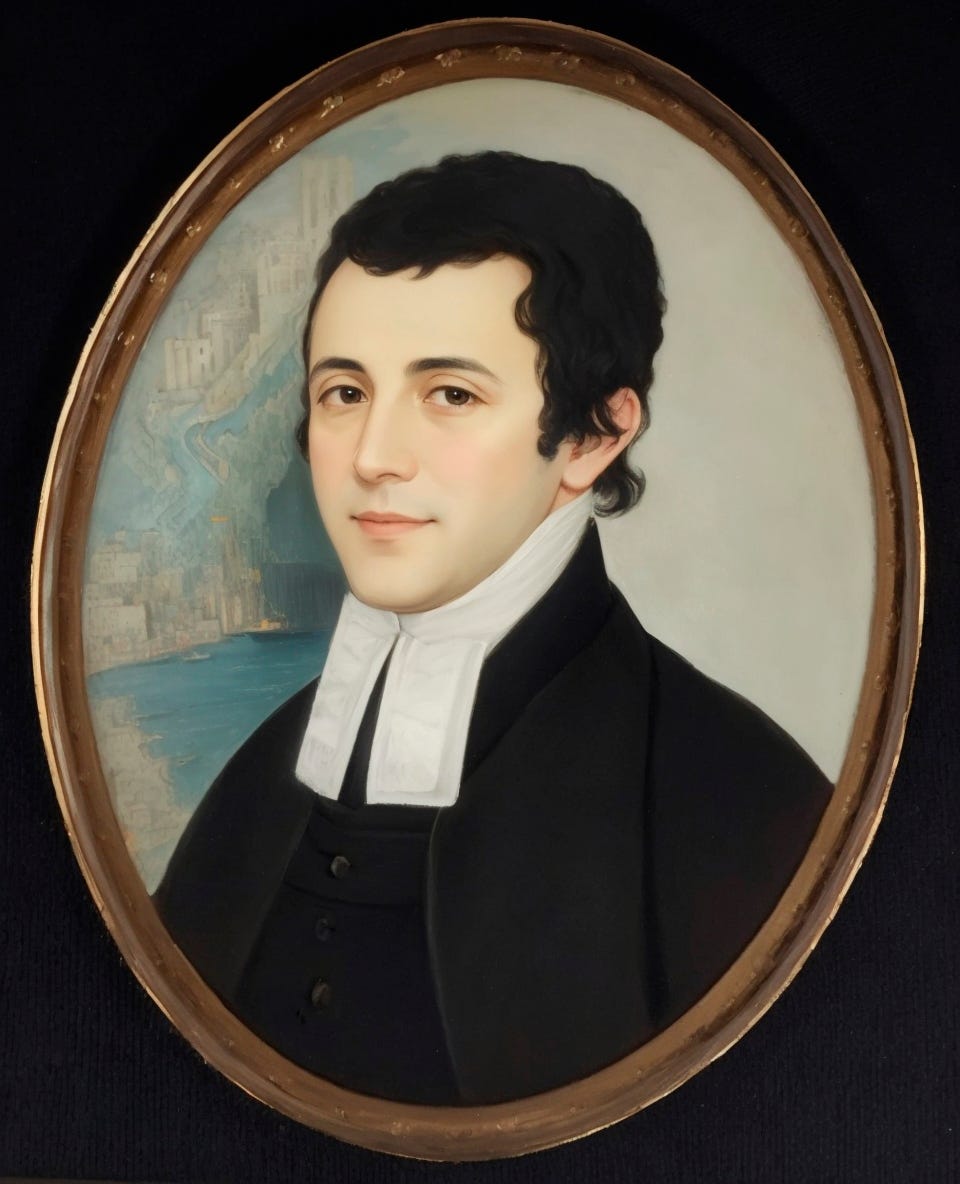
What was it about America that attracted Abraham Seixas and other Jews fleeing the Spanish and Portuguese Inquisition at this time? They could have stayed in London, which had a synagogue, or Barbados. Instead, they chose colonial America.
The Puritans in Boston certainly were not welcoming of outsiders who did not share their religious beliefs. A Puritan minister explained that the business of the first Puritan settlement “was not toleration, but [they] were professed enemies of it.” The Church of England and government in Virginia were not any better when they passed anti-Quaker laws that included the death penalty in 1659.
Two colonies, however, in particular, Rhode Island and Pennsylvania, stand out for embracing the ideal of religious liberty that later defined all of America. These localities were magnets for persecuted Jews.
In Portugal, Jews were forced to become Catholics and follow Catholic theology and practices. This was forced worship. Conversions that were not made freely from the heart were forms of tyranny in the eyes of Roger Williams, the founder of Rhode Island.
“Forced worship stinks in God’s nostrils,” Williams wrote in a pamphlet called The Bloudy Tenant of Persecution, for Cause of Conscience, Discussed in a Conference between Truth and Peace in 1644.
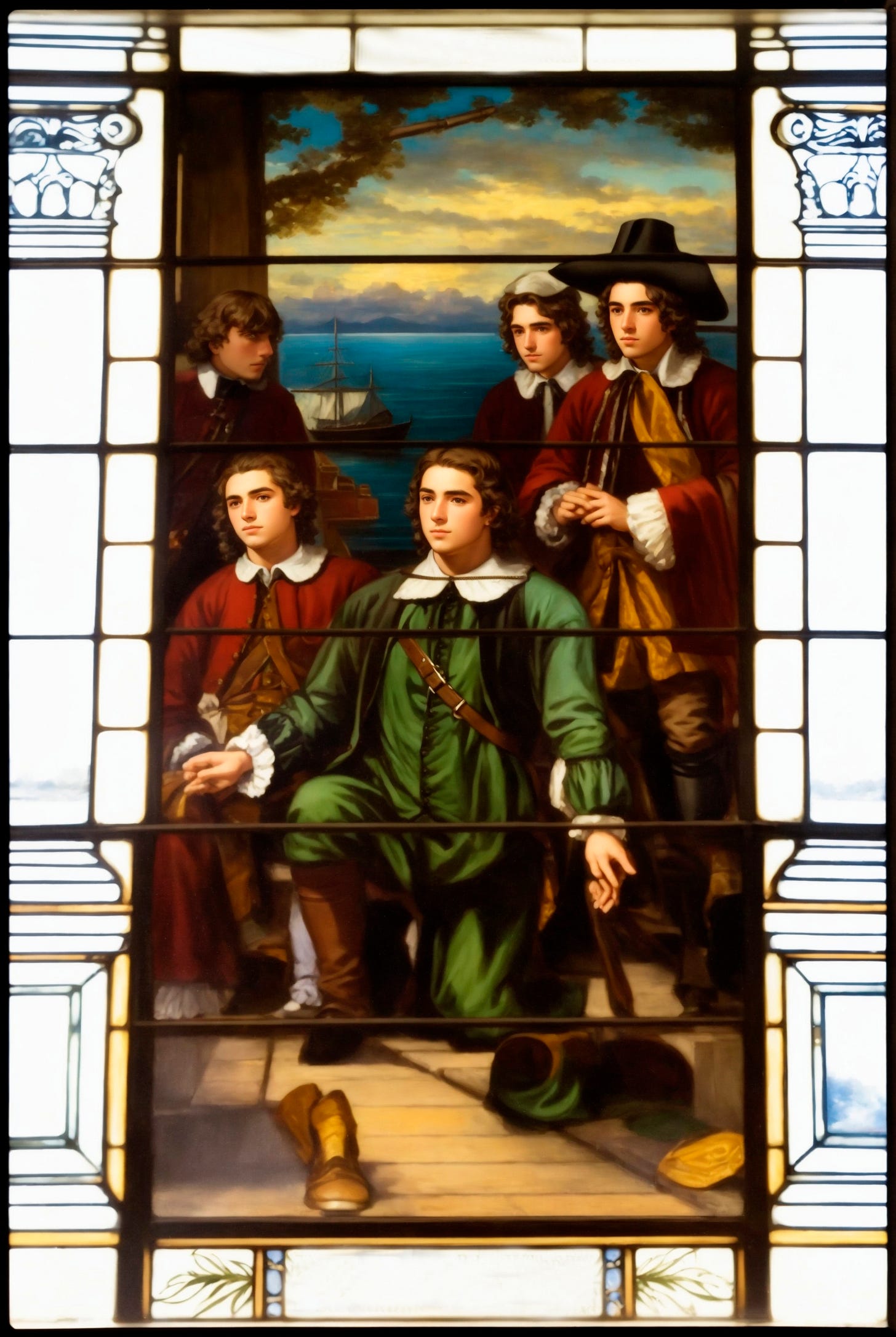
Exiled from Massachusetts in 1636, Williams received a charter in 1643 from the king of England to establish the colony of Rhode Island. He purposefully welcomed people of every shade of difference in their religious beliefs. In contrast to Portugal’s Inquisition officials, he passionately believed that civil government authorities should not enforce religious beliefs.
“God requireth not an uniformity of religion to be enacted and enforced in any civil state; which enforced uniformity (sooner or later) is the greatest occasion of civil war, ravishing of conscience, persecution of Christ Jesus in his servants, and of hypocrisy and destruction of millions of souls,” he wrote.
Because of Williams’s toleration, many different groups came to Rhode Island, whose nickname was, fittingly, Rogue Island. William Penn was similar to Williams in his views of religious tolerance. Penn, who was a member of the Society of Friends known as Quakers, received a charter from the King of England in 1681 for the colony of Pennsylvania. Though intended for Quakers, Pennsylvania was purposefully open to everyone.
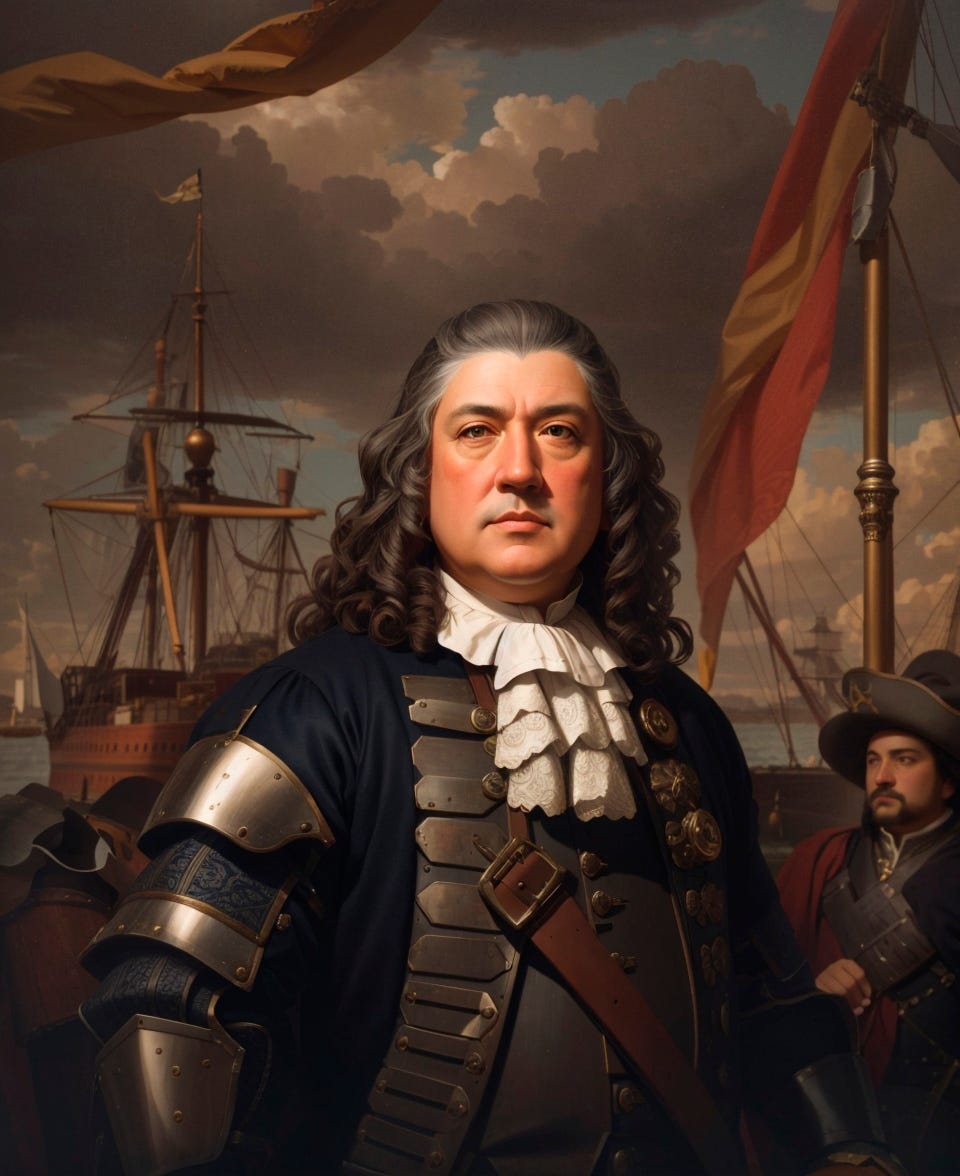
In publishing his frame of government, Penn wrote that all believers in “One Almighty and Eternal God . . . shall in no ways be molested or prejudiced for their religious persuasion or practice in matters of faith and worship.” Penn welcomed Jews to Philadelphia, which documented the first Jew on record in 1703.
Not forcing a religion on the population was a significant break from European governments. William Penn and Roger Williams were confident enough in what they believed to allow religion to be a free choice. Both also established good relationships with Native American tribes.
The first Jews arrived in Roger Williams’s Rhode Island in 1658. Their established presence gave assurance to Abraham Seixas and his family that they would be accepted when they arrived in the mid 1700s. In 1763, about two dozen Jewish families dedicated a synagogue in Newport. Building a synagogue would never have been possible in Portugal at the time.
Two years later in 1765, Parliament passed the notorious Stamp Act, which was the first internal tax levied on the American colonists. Protests broke out everywhere. Samuel Ward, Rhode Island’s governor, was the only governor who did not appoint a Stamp Act collector. Knowing that he needed to reassure the king of his loyalty after taking this stand, Governor Ward issued a Thanksgiving Proclamation in November 1765. He made it a point to give thanks to God for the king and offered prayers for the first family.
Governor Ward also encouraged ministers to lead their congregations in a service of thanksgiving. Rabbi Isaac Touro answered the call. Writing a Thanksgiving prayer in Hebrew, Touro translated it into English and arranged for it to be published in the Newport newspaper. Despite his theological differences with his Christian neighbors and the turmoil caused by the Stamp Act, giving thanks to God for blessings in 1765 was a shared value and an act of faith.
As Americans today watch the events in Israel unfold and see the ugly rise of anti-Semitism in America, it’s important to find something positive to meditate upon. Gratitude has the power to lift the spirits of those grieving and experiencing grievance.
Though you wouldn’t know it by the presence of Halloween candy and Christmas treats filling the aisles of your local pharmacy and the absence of Thanksgiving paraphernalia, Thanksgiving is coming.

Below is Rabbi Touro’s Thanksgiving prayer for the people of Newport Rhode Island in 1765. May it remind you of the reasons the first Jews came to America and the commitment to liberty that America needs today in the face of turmoil. May it remind you of God’s presence, his Providence.
When the Bill of Rights was ratified, the founders embraced the tolerance of Roger Williams and William Penn in the first amendment’s freedom of religion. Our nation’s founders were confident enough in what they believed about God to let faith be free.
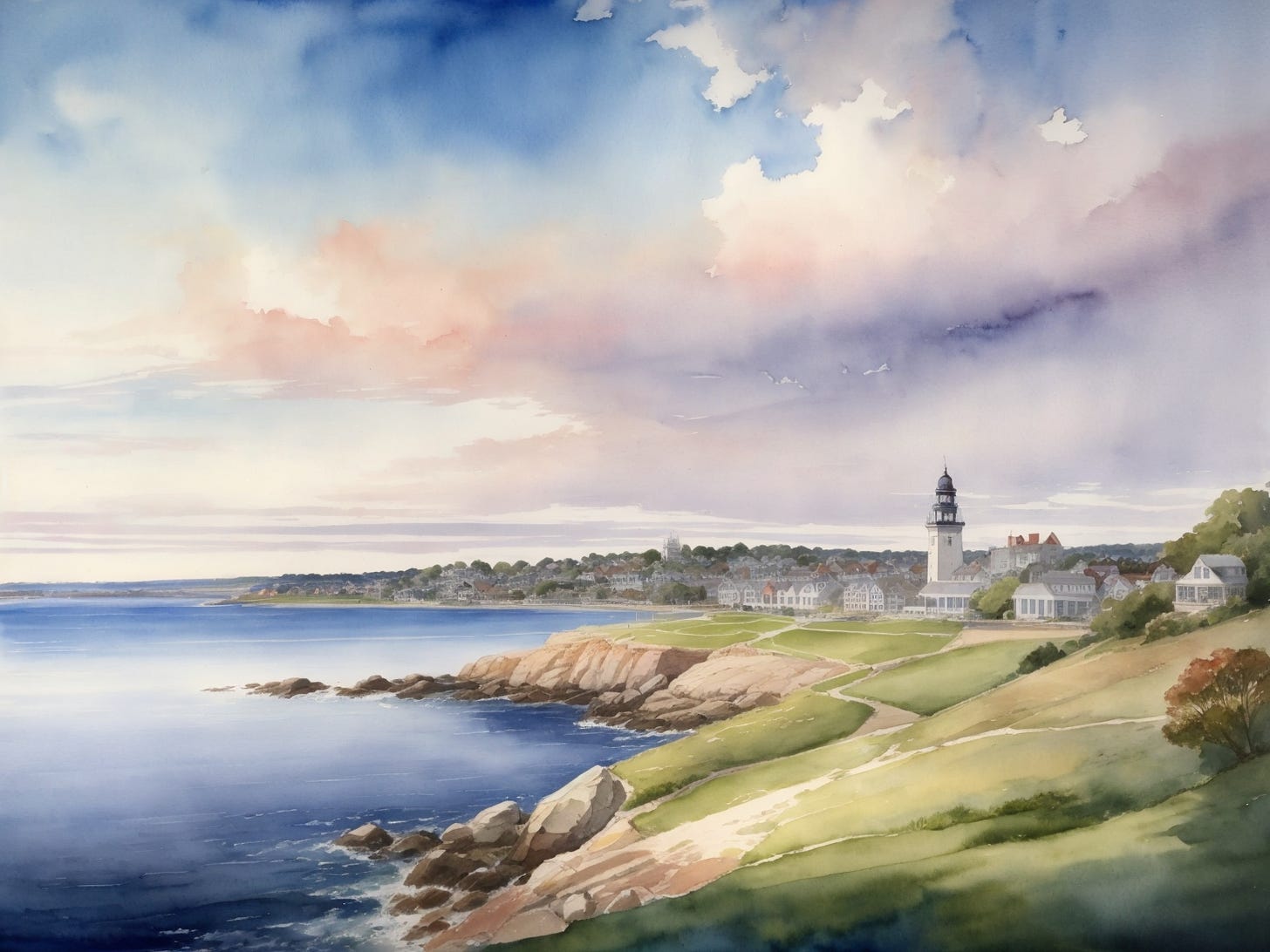
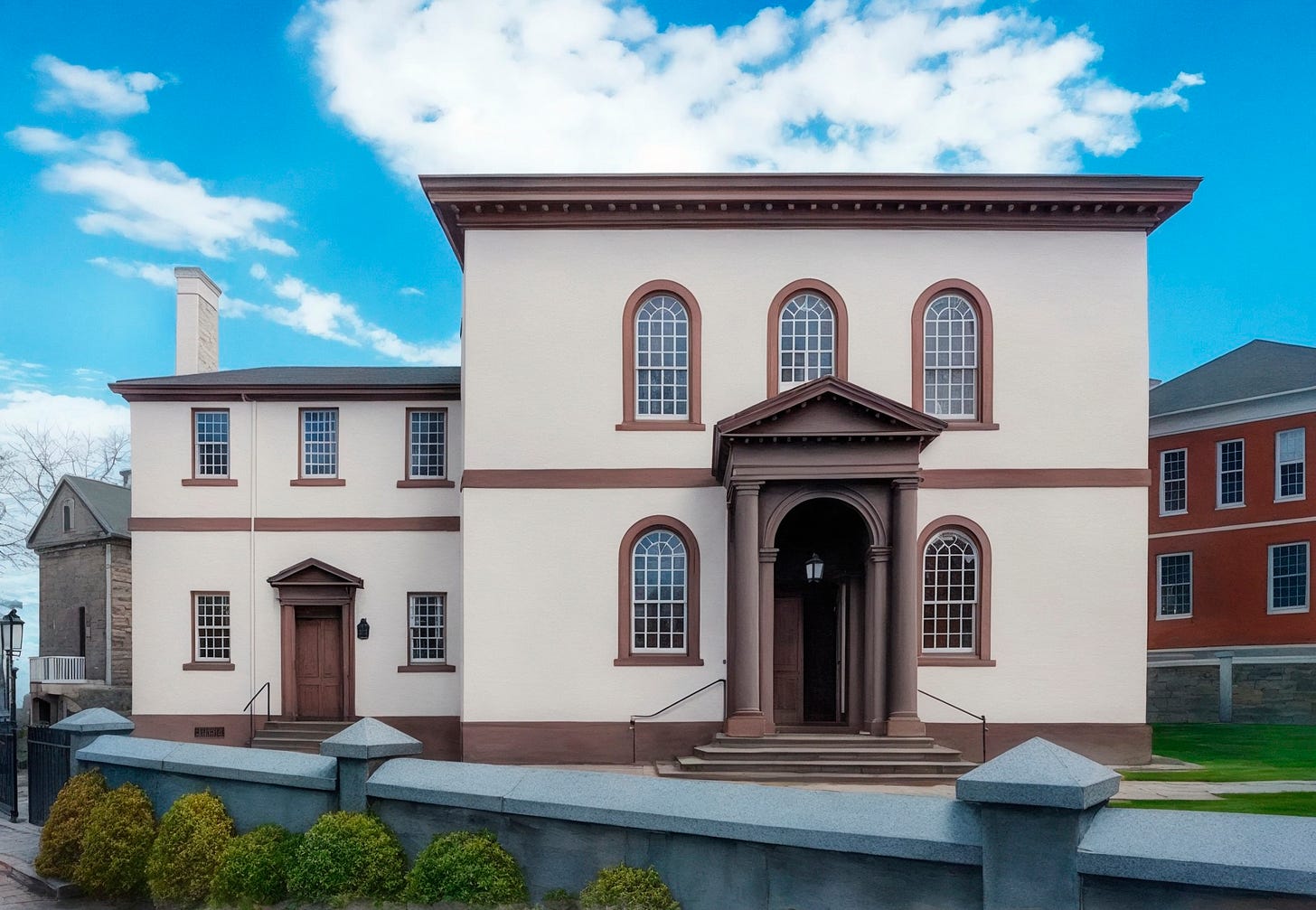
“Universal Lord! And Lord of Lords, Great God, powerful and tremendous, exalted above all Exaltation! We are this day assembled in thy presence, to sing praises, and to give thanks for all thy mercies and goodness, which thou hast bountifully bestowed upon us, in that the land hath yielded her increased, and the trees of the field their fruits.
—Wherefore, Lord Our God, and God of our Fathers, extend thy compassion and thy Mercy unto us, and to all who depend on us. Suffer not thy people to stand in need of sustenance. Grant, we beseech thee, that we may enjoy internal peace in this land; and that peace may subsist between all states and potentates; that thy holy word, spoken by the prophet, may be fulfilled; ‘and I will give peace in the land.’ Be graciously pleased to grant, that we may hear glad tidings of our neighbors who inhabit round about us.
—Save and prosper our most gracious Sovereign, King George the Third, and all the Royal Family:
—Point out to all the king’s counselors, into the high court of Parliament, the secrets of wisdom; and direct their consultations to the safety and welfare of the whole British Empire. Lord, preserve them; and grant that we may in our days behold ‘how beautiful upon the mountains are the feet of him that bringeth good tidings; that publisheth peace; that bringeth good tidings of good; that publishes salvation: that saith unto Zion, thy God reigneth.’
—Lord, let this be thy will. Amen.”[i]
Rabbi Isaac Touro, 1765

- BREAKING: DOD CONTROLLED COVID ‘VACCINES’ FROM THE START UNDER NATIONAL SECURITY PROGRAM – LIED THE ENTIRE TIME – Were NEVER ‘Safe and Effective’
- Is Defeated Mental Health Bill (HB 520) Trying To Sneak Back Into Play?


